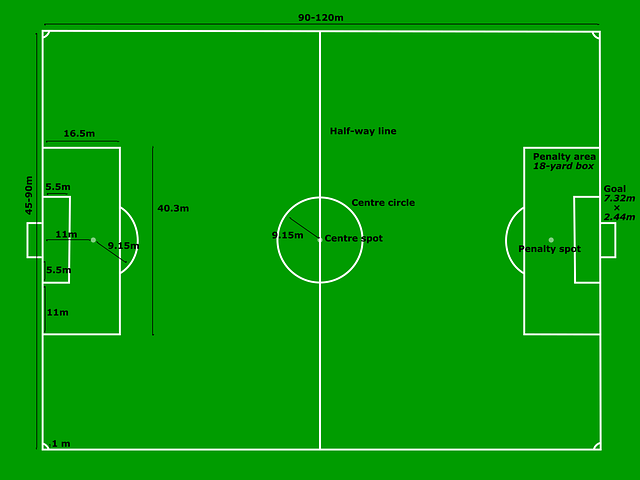Contempt of court in Oregon carries severe penalties, including fines and imprisonment, for violating court orders. Cases are categorized as civil or criminal, with civil involving non-compliance and criminal relating to courtroom disruption. Accusations trigger hearings where prosecutors must prove contempt beyond a reasonable doubt. Effective legal defense strategies challenge evidence and procedures, aiming to avoid harsh sanctions that deter future non-compliance and maintain judicial integrity.
In Oregon, contempt of court is a serious legal matter with significant consequences. This comprehensive guide explores the legal outcomes of contempt cases, delving into crucial aspects such as courtroom sanctions, including fines and imprisonment, and the distinction between civil and criminal contempt. We navigate the process from accusation to verdict, highlighting defense strategies against contempt charges and the impact on future legal proceedings. Understanding these dynamics is essential for both individuals and legal professionals navigating Oregon’s judicial system.
- Understanding Contempt of Court in Oregon
- Courtroom Sanctions: Fines and Imprisonment
- Types of Contempt: Civil vs Criminal
- Process: From Accusation to Verdict
- Defense Strategies: Challenging Contempt Charges
- Impact on Future Legal Proceedings
Understanding Contempt of Court in Oregon

Contempt of court is a serious legal issue that occurs when an individual or entity fails to comply with a court order or engages in conduct that obstructs justice. In Oregon, contempt cases are handled as courtroom sanctions, designed to enforce court orders and maintain the integrity of the judicial system. The state’s laws allow for various penalties, including fines, jail time, or both, depending on the severity of the offense.
When a party is accused of contempt, they have the right to defend themselves in court. The burden of proof lies with the plaintiff or prosecutor, who must demonstrate beyond a reasonable doubt that the defendant intentionally violated a court order. Understanding the legal definition and procedures surrounding contempt of court in Oregon is crucial for both parties involved, as it ensures fair and effective navigation of the courtroom sanctions process.
Courtroom Sanctions: Fines and Imprisonment

In Oregon, courtroom sanctions for contempt can include fines and imprisonment, which serve as powerful tools for holding individuals accountable. Fines are monetary penalties imposed on those found guilty of contempt, with amounts varying based on the severity of the offense and any financial resources available to the contemner. These fines can range from modest sums to significant financial burdens designed to deter future noncompliance.
Imprisonment is a more severe consequence, with individuals facing a period of time behind bars for direct disobedience or repeated contemptuous behavior. The length of imprisonment reflects the seriousness of the matter and can result in days, weeks, or even months of detention. Such harsh penalties are intended to enforce court orders and ensure respect for judicial authority within Oregon’s legal system.
Types of Contempt: Civil vs Criminal

In Oregon, contempt cases can be categorized into two main types: civil and criminal. Civil contempt arises when an individual fails to comply with a court order intended to enforce a right or remedy in a civil case. Common examples include failing to pay alimony, child support, or not adhering to a restraining order. Courtroom sanctions for civil contempt typically involve fines, imprisonment, or both, with the primary goal of compelling compliance with the court’s order.
Criminal contempt, on the other hand, involves intentional disobedience or misconduct in the courtroom or towards judicial processes. It is treated as a criminal offense and carries stiffer penalties, including longer prison sentences and substantial fines. Oregon courts take criminal contempt seriously to maintain decorum, respect for the judiciary, and the integrity of legal proceedings.
Process: From Accusation to Verdict

The process of addressing contempt in Oregon’s legal system begins with an accusation, which can be made by any individual or entity aggrieved by a party’s failure to comply with a court order. The accused is then summoned to appear before a judge, who will hear evidence and arguments from both sides. During this phase, the burden of proof lies on the accuser to demonstrate beyond a reasonable doubt that the respondent has indeed been contumacious. If the judge finds the accusation valid, they may issue various courtroom sanctions contempt of court orders, ranging from fines to imprisonment or both. The verdict is then communicated to the parties involved, setting in motion any subsequent appeals or enforcement actions.
Oregon courts take contempt cases seriously, recognizing their role in upholding the integrity and effectiveness of judicial proceedings. As such, the process is designed to be thorough and fair, ensuring that all due processes are followed while holding non-compliant individuals accountable for their actions. This meticulous approach not only serves as a deterrent but also reinforces the authority of court orders, fostering respect for the legal system in Oregon.
Defense Strategies: Challenging Contempt Charges

In Oregon, challenging contempt charges is a complex legal strategy that requires robust defense strategies. One common approach is to dispute the evidence presented by the accuser, as contempt cases often hinge on factual interpretations. Legal teams may examine whether the alleged actions truly constituted contemptuous behavior under Oregon’s laws and court rules. Additionally, they can argue procedural errors, such as insufficient notice or improper procedure, which could lead to the dismissal of charges or a favorable outcome for the defendant during courtroom sanctions.
Defenders might also invoke legal precedents and case histories to strengthen their argument. Familiarity with previous contempt cases in Oregon helps in anticipating potential loopholes or inconsistencies that can be exploited. By presenting a compelling defense, individuals facing contempt charges aim to protect their rights and potentially avoid severe courtroom sanctions while ensuring due process is followed throughout the legal proceedings.
Impact on Future Legal Proceedings

The legal outcomes of contempt cases in Oregon can significantly impact future legal proceedings, serving as a deterrent and a guide for similar cases to come. When a court finds an individual or entity in contempt, it sends a clear message that willful disregard for judicial authority will not be tolerated. Courtroom sanctions for contempt, which can include fines, jail time, or both, are designed to restore order and respect for the legal process.
In Oregon, these cases are handled with due process, ensuring that all parties involved have the chance to present their arguments. The consequences of a contempt finding extend beyond the immediate case, influencing how similar situations are approached in the future. Understanding these outcomes can help legal professionals and individuals navigate future interactions with the court system, promoting a more respectful and compliant environment.
